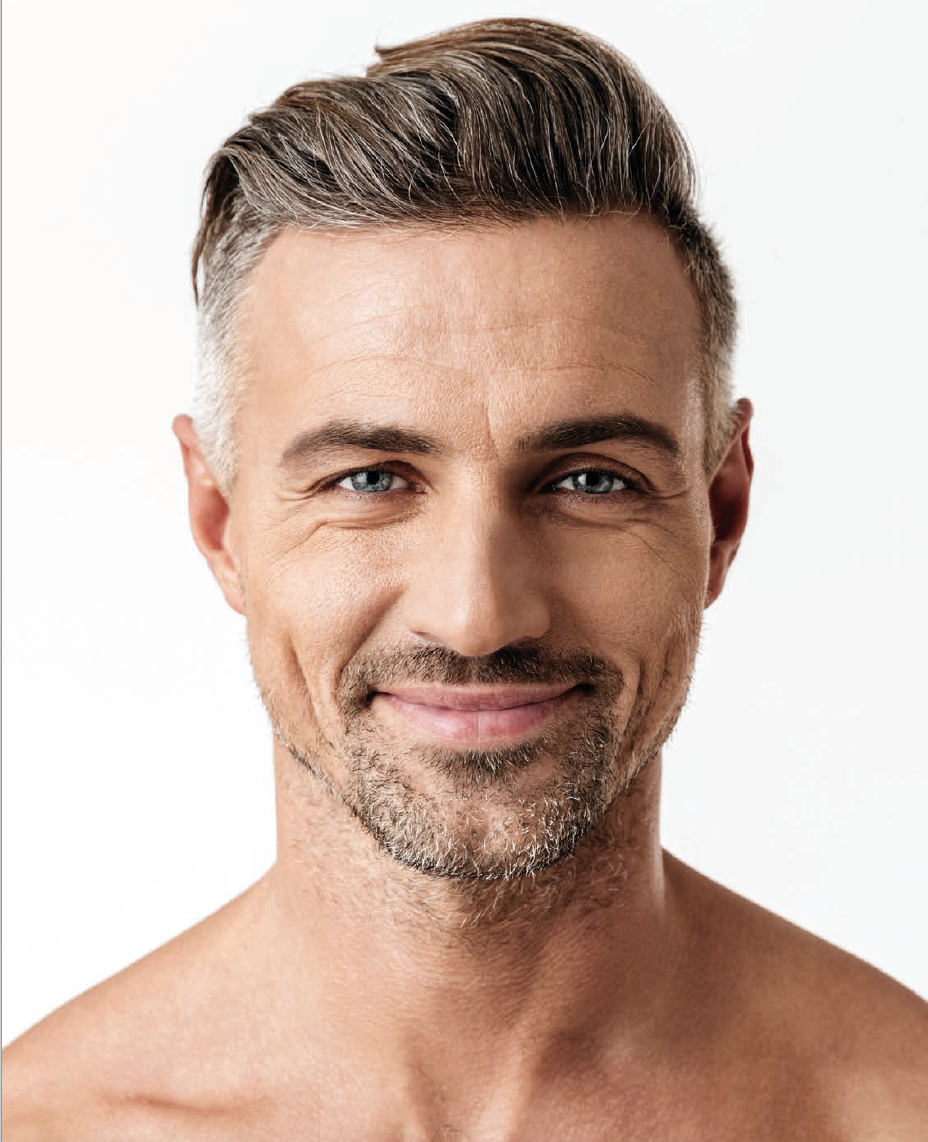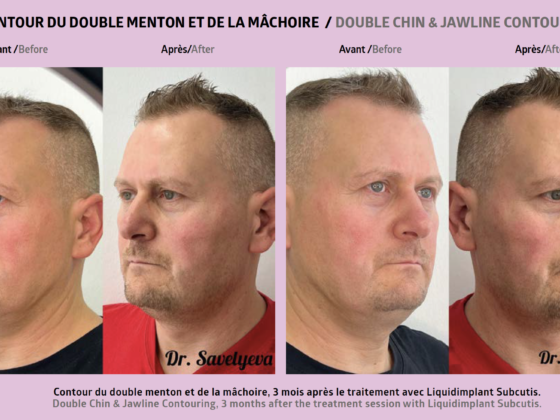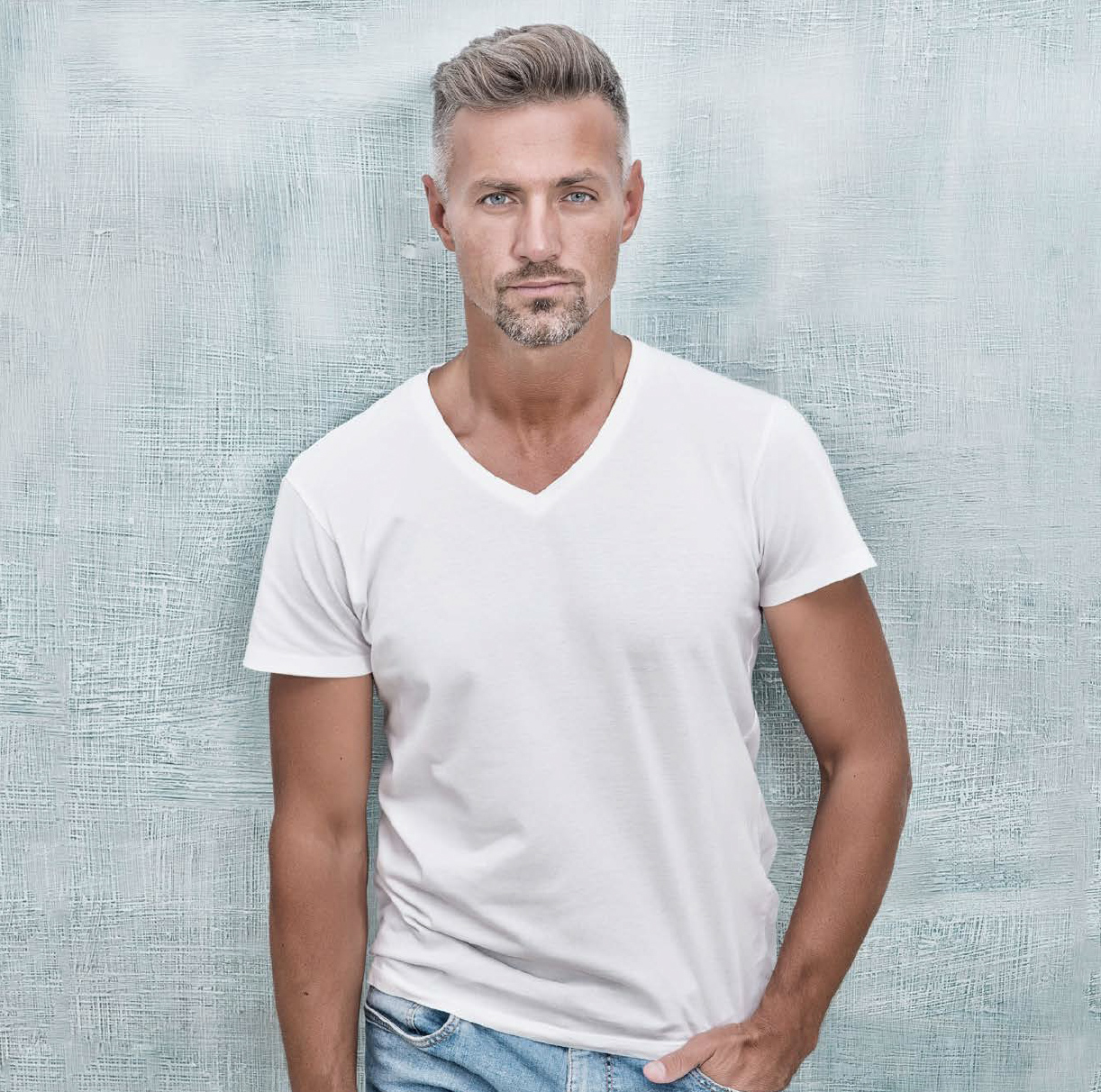By Doctor Nadine Pomarède
Some of the medical treatments available for treating androgenetic alopecia (AGA) are rather controversial nowadays. At the same time, some promising new injectables based on auto-regeneration and cell stimulation have hit the market.
Androgenetic alopecia (AGA) is responsible for two thirds of all cases of baldness in men, and can appear from the end of puberty. At age 50, half of all men are concerned. This hair loss also affects women: 25% of women aged 35 to 45 and up to 45% of women aged 50, since it is aggravated by the menopause. AGA leads to significant hair loss, both in men and women. Localised on the top of the scalp, it causes men to go bald at varying rates. Women may lose a significant amount of hair, particularly along their parting and fringe.
Controversial classic medical treatments
The medical treatment of AGA relies on Minoxidil and Finasteride. In men, the controversy surrounding Finasteride and its possible effect on the mood (anxiety, depression) has not yet been discounted. In women, cyproterone acetate did not prove effective for this indication and should no longer be prescribed as a first resort because of the risk of meningioma, which is multiplied by 20 in the event of long-term use (5 years at 50mg/day).
New injectable treatments for AGA
The reinjection of stem cells into the scalp (Rigenera®)
The hair follicles contain stem cells in the hair root (bulb). These cells are capable of recreating a new hair follicle. In practice, we carry out a 3mm biopsy on the scalp, pass the sample through a centrifuge with 1.2ml of physiological saline in a single-use container, then reinject the suspension following the mesotherapy technique. The downside to this technique is that only small areas can be treated: 1mm2 of tissue harvested allows us to treat 2cm2 (tonsure, temples, parting). Only one session is required. A study published in Stem Cell Investigation in 2017 (2) shows that this technique is capable of boosting the hair density by 29% after 23 weeks.

Biomimetic peptide injections
More recently, a treatment that involves injecting biomimetic peptides has been developed. A specific peptide complex, Dr Cyj Hair Filler® from Caregen® Laboratories, is recommended for the treatment of AGA.
Dr Cyj Hair Filler® mimics the action of the peptides present in our bodies. They stimulate the vascularisation of the hair follicles, the proliferation and differentiation of stem cells in the hair bulb, and the growth of good-quality, new pigmented hairs. At the same time, Dr Cyj Hair Filler® reduces the expression of DHT, which causes the hair follicles to shrink and the hair to fall out. Result: new, permanent, coloured hairs in areas that were thinning. Peptides are small groups of amino acids from plants (non-transgeniccorn). They are resorbable, degradable, injectable molecules that do not cause allergies. The injection protocol involves 4 sessions spaced 2 weeks apart on the areas of scalp that are thinning, and performed with an injector gun. A top-up treatment every month for three months is required to fortify the results, then one injection twice a year. The counterindications for biomimetic peptide injections are connected with the presence of 0.7% of non-cross-linked hyaluronic acid in the syringes of Dr Cyj Hair Filler®: autoimmune disease, previous serious allergies or anaphylactic shock, pregnancy and breastfeeding.
These new injectable treatments based on stimulating the cells’ repair and regeneration processes are a promising alternative for patients who are not suitable candidates for hair grafts or who do not wish to have surgery.
 Doctor Nadine Pomarède
Doctor Nadine Pomarède
Dr Nadine Pomar.de practises aesthetic dermatology in Paris and Brussels, in the DermoMedicalCenters that she founded. She is a member of the gDec Aesthetic and Corrective Dermatology Group, and the French Dermatology Society (SFD).











